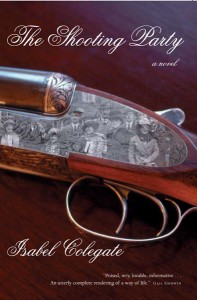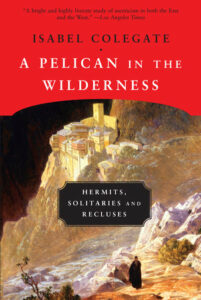Isabel Colegate
Isabel Colegate is the author of twelve novels, a collection of short stories, and A Pelican in the Wilderness: Hermits, Solitaries, and Recluses. She lives near Bath, England.
Subscribe to our newsletter for news & events from Counterpoint Press.
Books
The Shooting Party
A Novel
"A beautifully crafted novel, remarkably visual and evocative. The characters are caught in stunning images and tableaux that convey the essence of their natures, the sweep of their emotions." —The Washington Post"The Shooting Party is a lovely piece of writing, in which subtlety, irony, and close observation abound." —Larry McMurtry
It is the autumn of 1913. Sir Randolph Nettleby has assembled a brilliant array of guests at his Oxfordshire estate for the biggest hunt of the season. An army of gamekeepers, beaters, and servants has rehearsed the intricate age–old ritual, the gentlemen are falling into the prescribed mode of fellowship and sporting rivalry, the ladies intrigued by the latest gossip and fashion. Everything about this splendid weekend would seem a perfect consummation of the pleasures afforded the privileged in Edwardian England.
And yet it is not: the moral and social code of this group is not so secure as it appears. Competition beyond the bounds of sportsmanship, revulsion at the slaughter of the animals, anger at the inequities of class—these forces are about to rise up and engulf the assured social peace, a peace that can last only a brief while longer. In imagining Sir Randolph's shooting party, wrote The Spectator, Miss Colegate has found a perfect metaphor for the passing of a way of life.
A Pelican in the Wilderness
Hermits, Solitaries, and Recluses
From Lao–tse and the Buddha, St. Anthony and the early Celtic hermits, through Rousseau, Thoreau, Ruskin, and up to the present day, certain gifted persons have shown a vocation for living alone and apart, finding in simplicity and attention to nature a spiritual space to be explored and rejoiced in. Others, retreating from the world in scorn or cut off from it by scandal, have found that solitude is Hell, a pit of melancholy and morbid fancy. In this, her first work of nonfiction, novelist Isabel Colegate gives us the lives of the solitaries — male and female, medieval and modern, divinely inspired and patently fraudulent. But this is no mere gallery of saints and sinners, poets and misanthropes. It is also a reevaluation of solitude for our times, and a reminder that it is in solitude that the soul meets itself, refreshes itself, and from there goes out to join the communal dance.
Catapult | Counterpoint | Soft Skull
20 Jay Street #704
Brooklyn, NY 11201
646.926.0805 | contact@catapult.co






